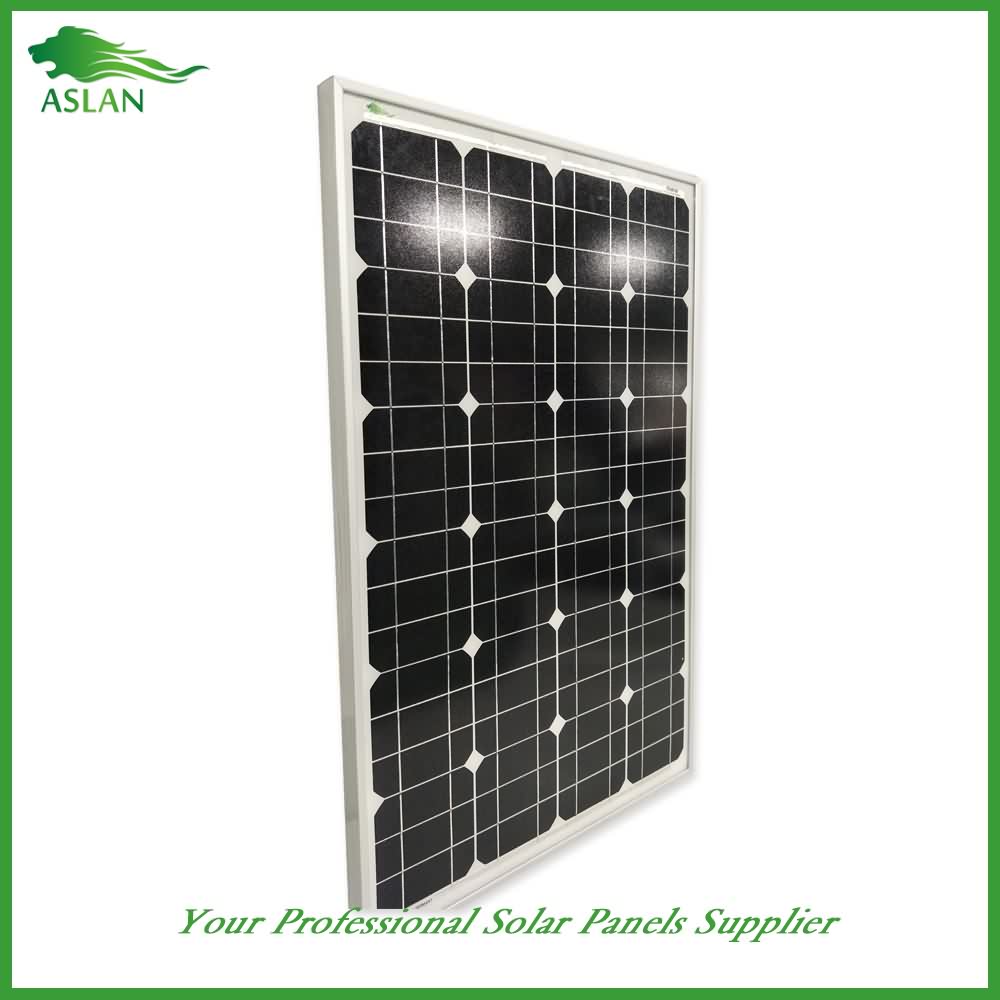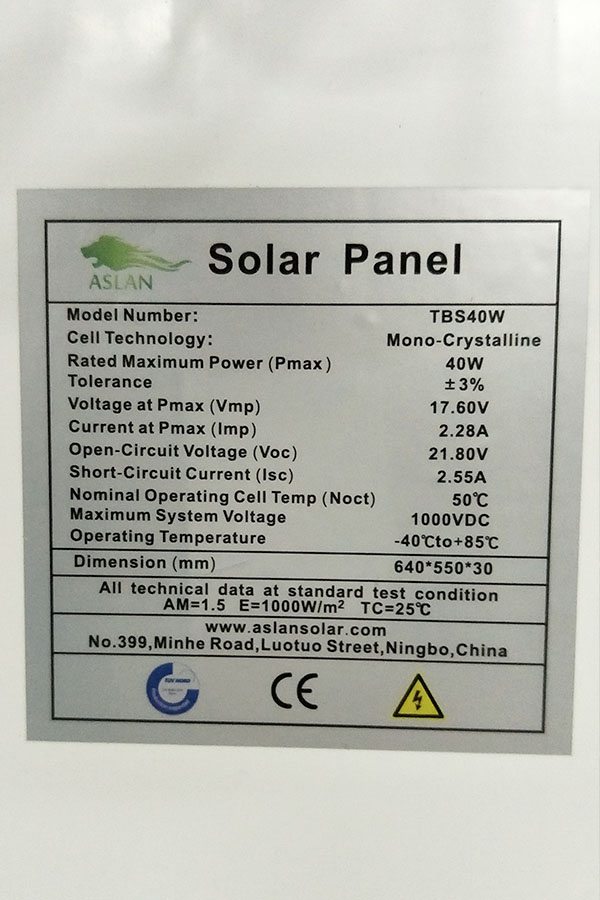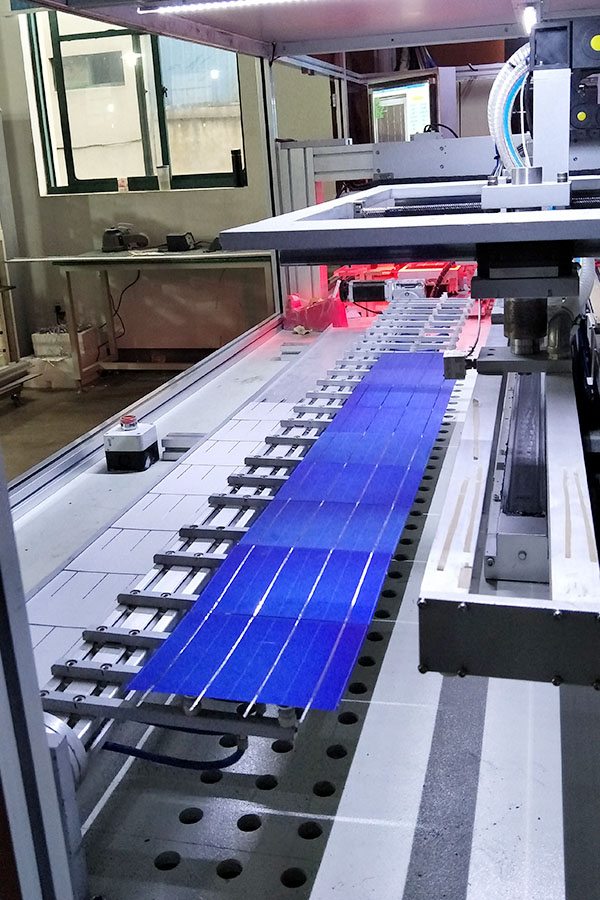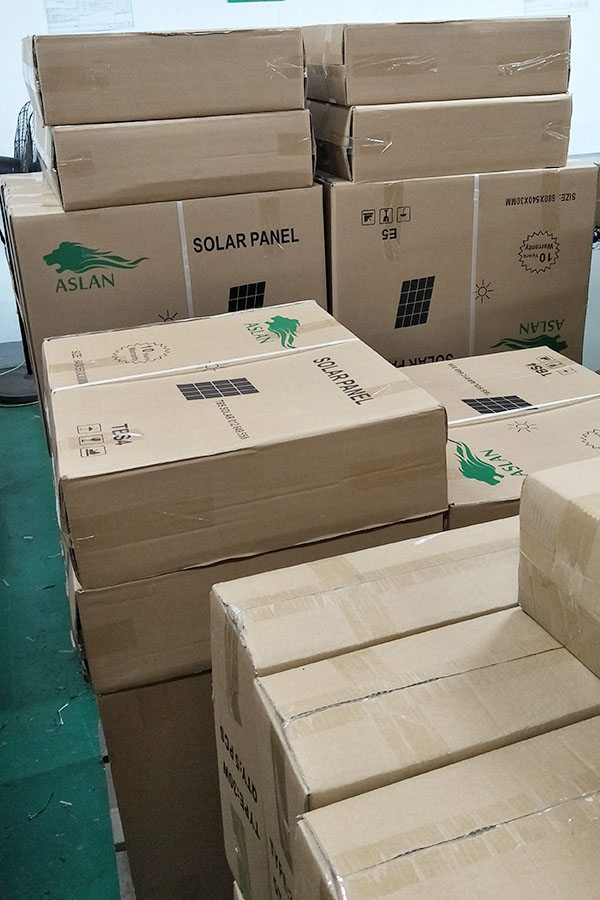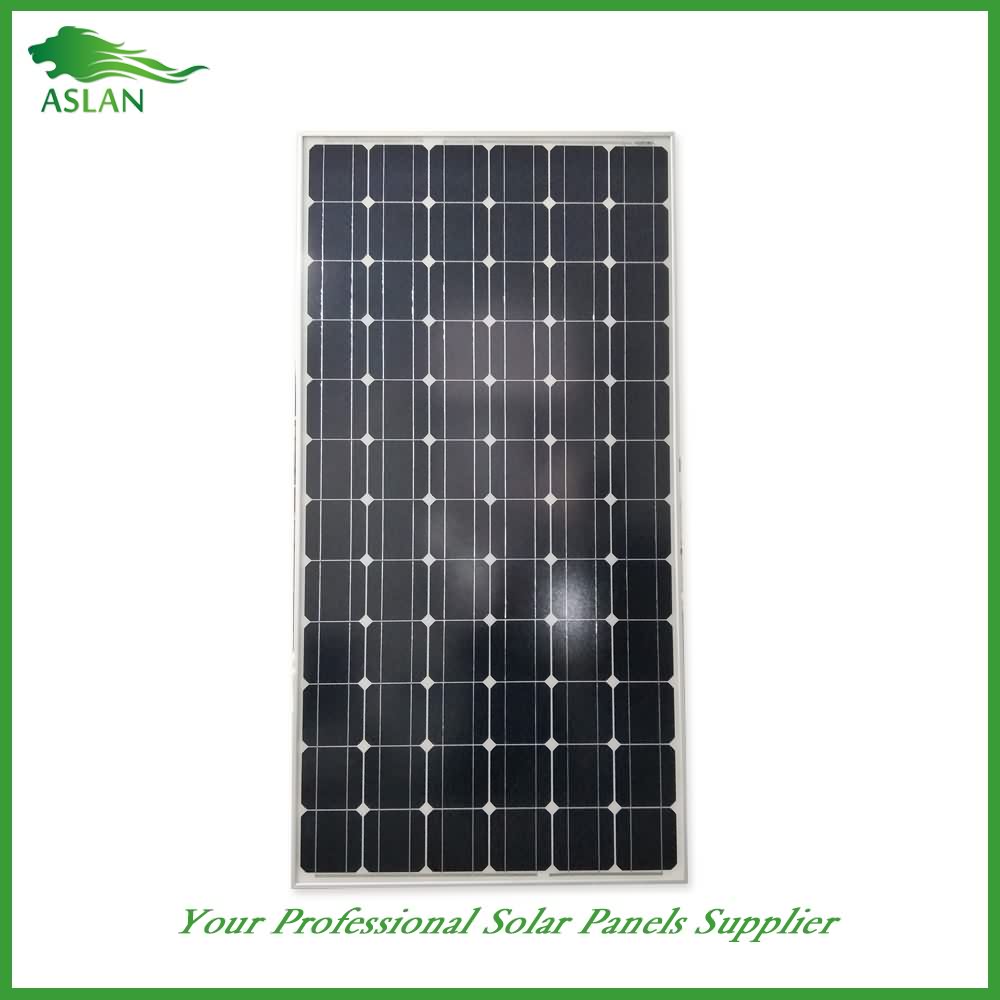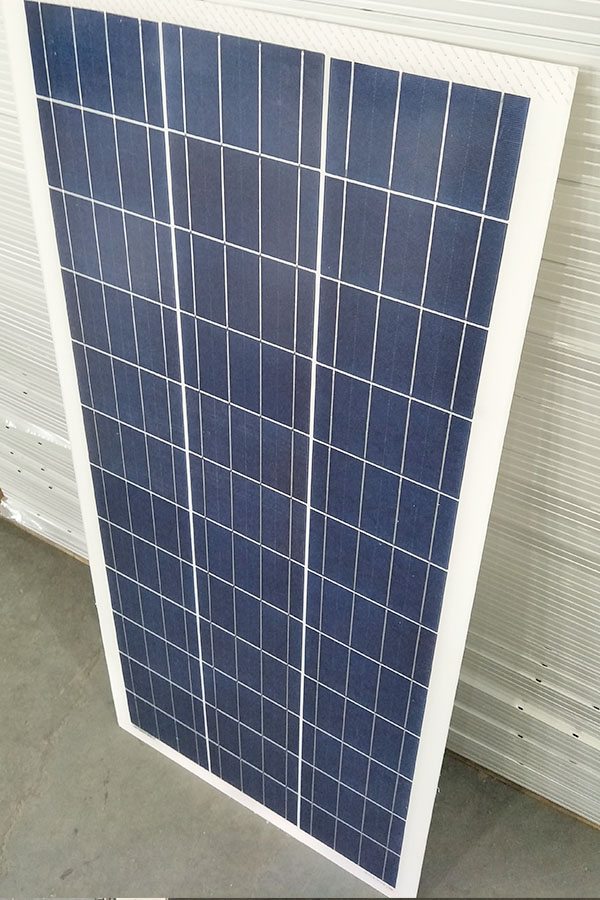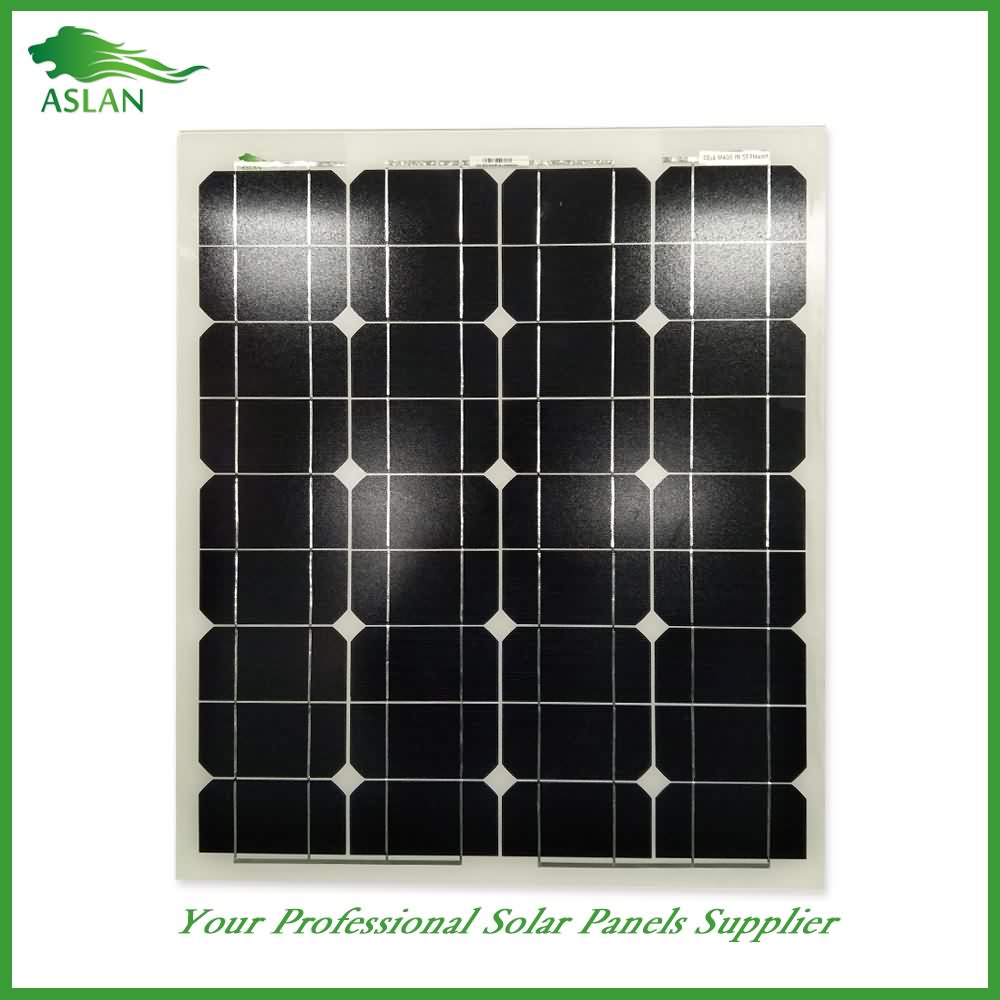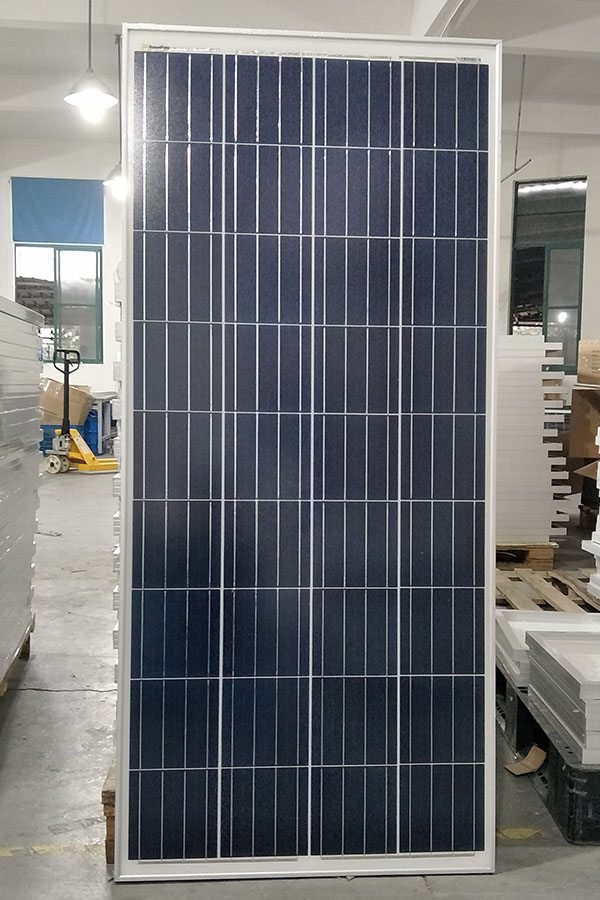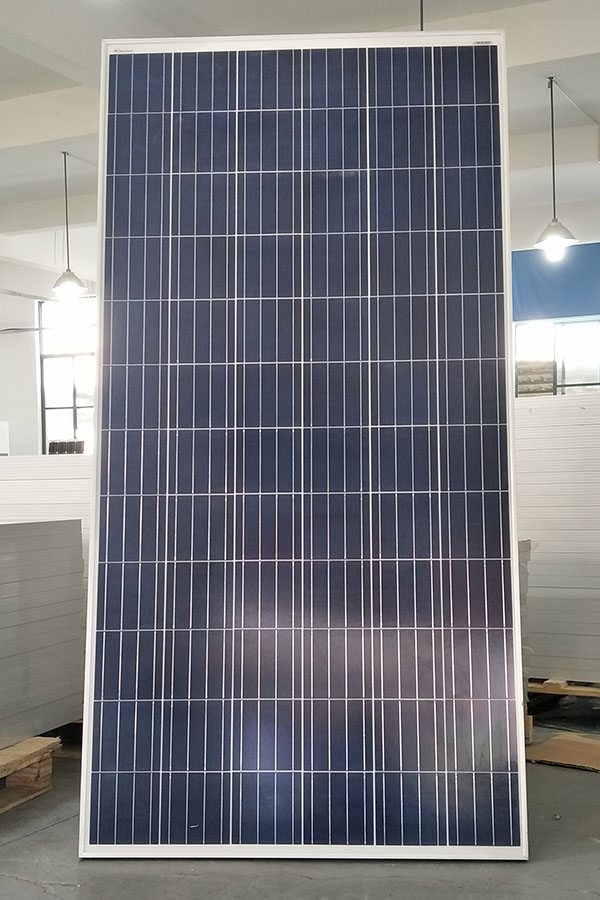Trending Products Mono-Crystalline 80W Solar Panel for Comoros Importers
Short Description:
With a sound business credit, excellent after-sales service and modern manufacturing facilities, we have earned an excellent reputation among our customers across the world for Trending Products Mono-Crystalline 80W Solar Panel for Comoros Importers, We warmly welcome you to establish cooperation and create a bright future together with us
Mono-Crystalline 80W Solar Panel
Technical parameter
Maximum Power(W) 80W
Optimum Power Voltage(Vmp) 15.90V
Optimum Operating Current(Imp) 5.03A
Open Circuit Voltage(Voc) 18.58V
Short Circuit Current(Isc) 5.59A
Mechanical Characteristics
Cell Type Monocrystalline 125x125mm (5 inch)
No of Cell 36 (4x9pcs)
Dimensions 906x670x35mm
Weight 7.2KGS
Front Glass 3.2mm,High Transmission, Low iron, tempered Glass
Junction box IP65 Rated
Output Cable TUV 1×4.0mm2/UL12AWG,Length: 900mm
Temperature and Coefficients
Operating Temperature(°C): -40°C ~ + 85°C
Maximum System Voltage: 600V(UL)/1000V(IEC) DC
Maximum Rated Current Series: 15A
Temperature Coefficients of Pmax: -0.435%
Temperature Coefficients of Voc: -0.35%
Temperature Coefficients of Isc: 0.043%
Nominal Operating Cell Temperature (NOCT): 47+/-2°C
Materials of solar panel
1).Solar Cell——Mono-crystalline solar cell 125*125mm
2).Front Glass——-3.2mm, high transmission, low iron, tempered glass
3).EVA——-excellent anti-aging EVA
4).TPT——-TPT hot seal made of flame resistance
5).Frame——anodized aluminum profile
6).Junction Box——-IP65 rated, high quality, with diode protection
Superiority: high quality anodized aluminum frame, high efficiency long life, easy installation, strong wind resistance, strong hail resistance.
Features
1. High cell efficiency with quality silicon materials for long term output stability
2. Strictly quality control ensure the stability and reliability, totally 23 QC procedures
3. High transmittance low iron tempered glass with enhanced stiffness and impact resistance
4. Both Polycrystalline and Mono-crystalline
5. Excellent performance in harsh weather
6. Outstanding electrical performance under high temperature and low irradiance
Quality assurance testing
Thermal cycling test
Thermal shock test
Thermal/Freezing and high humidity cycling test
Electrical isolation test
Hail impact test
Mechanical, wind and twist loading test
Salt mist test
Light and water-exposure test
Moist carbon dioxide/sulphur dioxide
Automated print system by HMI. Machines shown are the cassette loader, MSP-886 auto vision screen printer, Dryer loader ( Acl-68c Collocator) 24″ infrared dryer model MCD-2400, belt unloader (model M2ME) and finally the cassette reloader model C2SR)
BINGHAMTON, NEW YORK — Researchers at Binghamton University have come up with an interesting way to harness energy, using a resource we have far too much of — bacteria.
Science Daily reports that to harness power from bacteria, scientists arranged nine bio-solar cells in a 3-by-3 pattern to form a scalable and stackable panel.
The cells use cyanobacteria, which can be found in aquatic and terrestrial habitats, as a source of clean and sustainable energy.
In the daytime, light energy absorbed by the panel causes oxygen and electrons to be released through photosynthetic reactions. When conditions are darker and no sunlight is available, the bacteria’s respiratory activities produce electrons.
5.59 microwatts were generated in 12-hour day to night cycles over a total of 60 hours.
Solar panels using a 6-by-10 configuration produce about 200 watts at a given moment. The bio-solar cells, in the same pattern, will only generate 0.00003726 watts.
The technology is not the most efficient, but with further development, it has the potential to be a more reliable energy source. Once the panel becomes functional, it could power small, wireless systems in remote areas where frequent battery changes are impractical.
The findings were reported in the paper “Biopower generation in a microfluidic bio-solar panel” which was published in the journal Sensors and Actuators B: Chemical.
—————————————-———————
Welcome to TomoNews, where we animate the most entertaining news on the internets. Come here for an animated look at viral headlines, US news, celebrity gossip, salacious scandals, dumb criminals and much more! Subscribe now for daily news animations that will knock your socks off.
Visit our official website for all the latest, uncensored videos: http://us.tomonews.com
Check out our Android app: http://bit.ly/1rddhCj
Check out our iOS app: http://bit.ly/1gO3z1f
Get top stories delivered to your inbox everyday: http://bit.ly/tomo-newsletter
Stay connected with us here:
Facebook http://www.facebook.com/TomoNewsUS
Twitter @tomonewsus http://www.twitter.com/TomoNewsUS
Google+ http://plus.google.com/+TomoNewsUS/
Instagram @tomonewsus http://instagram.com/tomonewsus
